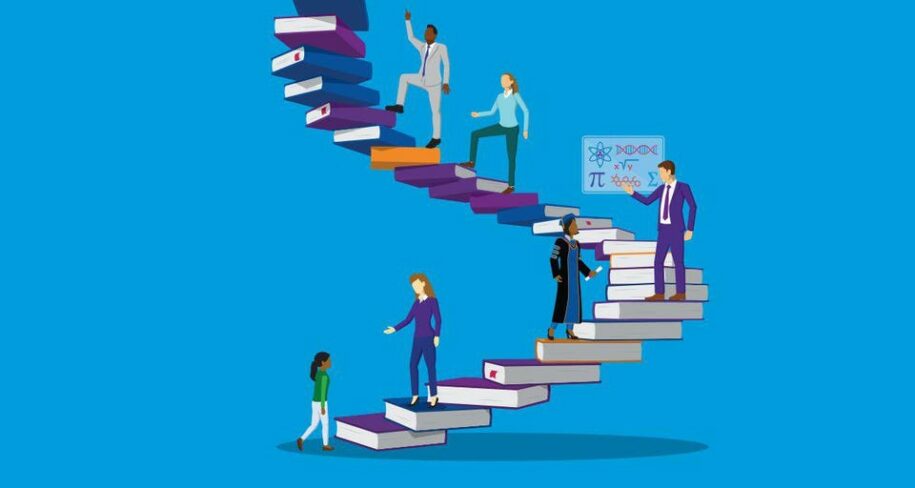Whilst I’ve had my head down in EdTech, working closely with schools, teachers and parents over the last few years, I haven’t had much opportunity to look up and out at what’s been happening in the wider business world.
But there’s been something happening that my friends in corporate HR, Tech and Finance cannot stop talking about and they’re calling it The Great Resignation.
This interests me because I’ve always said that People come first. I’m an engineer by trade but I am driven by impact and active people leadership. I believe that bringing together great minds and innovative spirits, can lead them to achieve the impossible.
Business leaders are losing some of their best people and getting pretty upset about it, so I started to think about what might be behind this global game of musical chairs, and examine what we could do about it.
Are staff so different from students?
We did a survey internally asking people about what is more important in their jobs currently than just a salary. We learned that career progression and work life balance are two of the most important things, and looking at the global trends, we’re not alone in hearing that from our people.
There’s a lot that businesses can learn, or unlearn from schools and I think these are two key areas.
For a start – the school year is broken up into terms with time for holidays in between. Each school day is broken down into 40-minute or hour long classes with breaks in between for a bit of playtime outdoors, or a quick snack.
This is a built-in framework for work life balance surely, but evidence suggests that these structured hours are not providing enough flexibility for optimal learning. When you limit people in particular ways, imagination and curiosity quickly declines.
This is something both schools and corporates need to unlearn.
What corporates could take on from schools however, is the reverence upon learning as the central objective of the school day. This is what keeps students engaged and their attention and energy well-regulated.
The thirst for learning does not end when we finish school though. In fact, our brains are hard-wired for curiosity – seeking out opportunities to play and experiment. Even in adulthood, humans have a unique ability to pick up new ways of doing things and new ways of thinking, allowing us to adapt to new circumstances. This is why our species has lasted as long as we have.
There is a need for corporations to encourage lifelong learning because it is an economic imperative. But more importantly – nurturing this amazing, innate trait of humanity and continuing our collective growth trajectory throughout our entire working careers is a duty. Because the more we learn, the more society all over the world will prosper.
The second point is career progression. If students don’t see progress – moving to a new class at the start of the year, or if they see their peers progress when they are not, it demotivates them quickly. This is similar to the corporate world. If employees don’t see career progression, they will become demotivated, unengaged and eventually leave.
Beyond L&D
Learning and Development or L&D has been a bit of a box-ticking exercise for HR departments. (If you’re lucky enough to have an HR department, that is.)
Many companies use Learning Management Systems (or LMS) which are useful for content delivery, but probably not leveraged internally as much as they could be.
There might be internal training that happens on certain days or weeks within the year. But they are usually very closely tied with company outcomes – to help salespeople sell a new Product within a Tech company for example. There might be external facilitators that come in and take certain teams or individuals through a course as a “reward” for top performers.
But it’s just not enough, and corporate leadership will always prioritise getting the ‘actual’ work done before the ‘playtime’.
There needs to be a cultural shift that raises the importance of learning globally and this starts from the senior leaders at the world’s biggest enterprises. Development goals and learning opportunities should factor into the objectives and KPIs of every individual in the company.
Ongoing learning should be embedded into the daily work day, and this shift needs to come from the top down.
My last article was about the foundation story of Octopus BI and this one is about where we’re heading. I believe that with a more holistic approach to learning beyond Education institutions, companies will begin to understand the power of real human potential.
Not only will they be set to better retain staff and improve their bottom lines, but the world at large will benefit too. When we are awarded the freedom to play, experiment and grow even as adults, who knows what we might be capable of!




